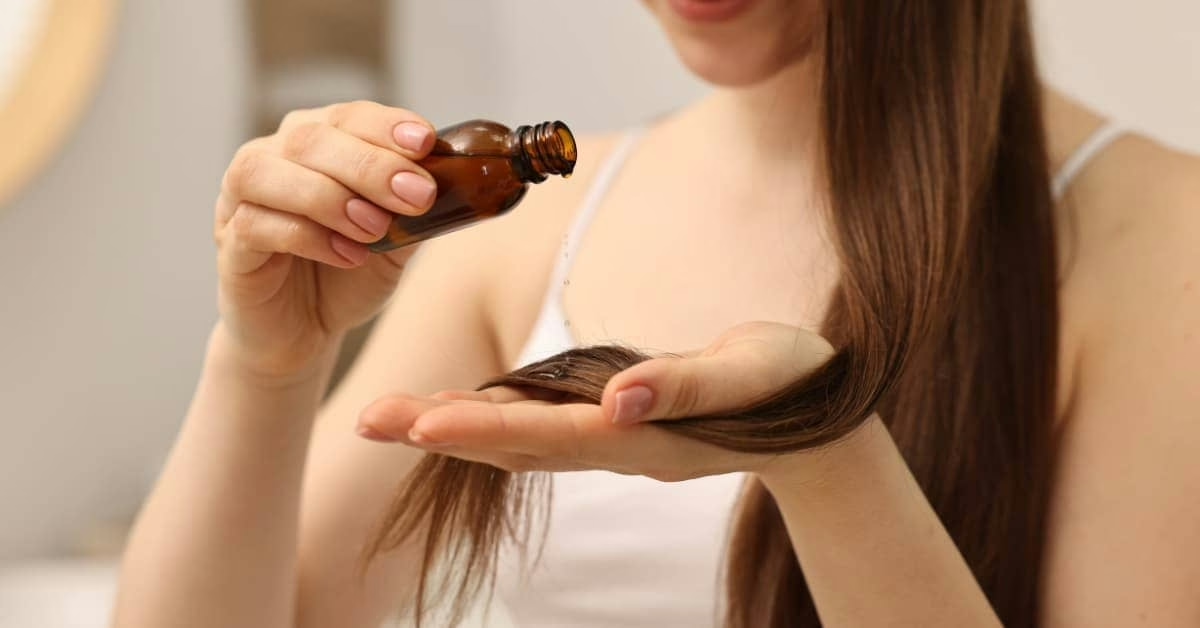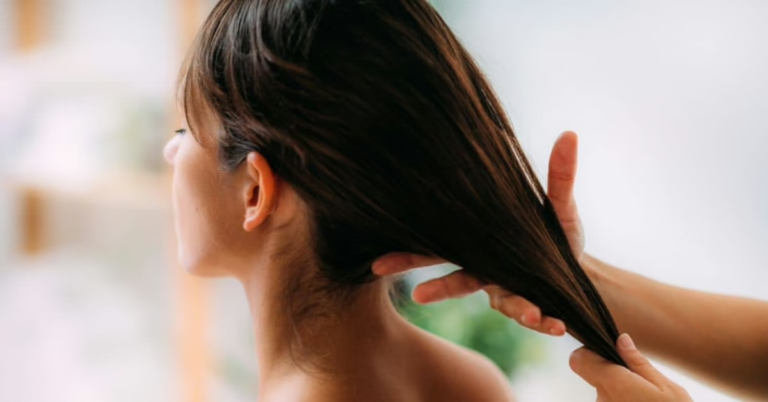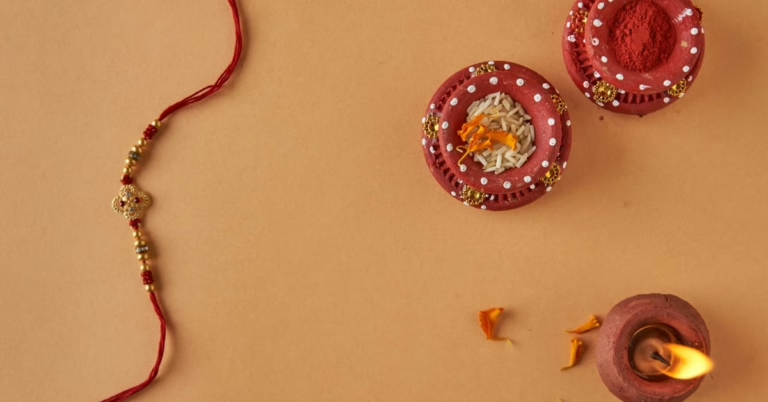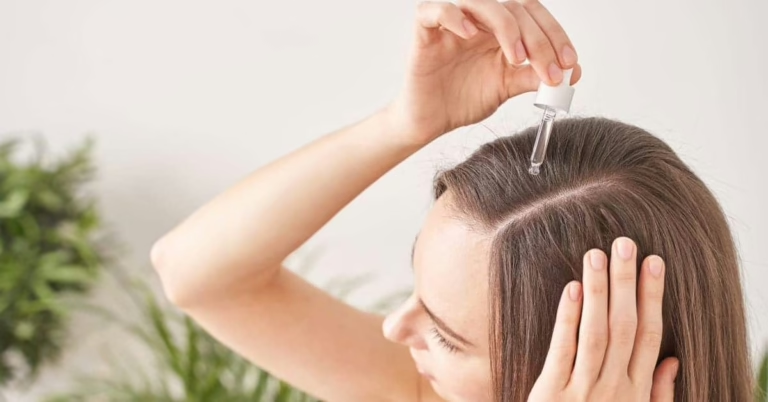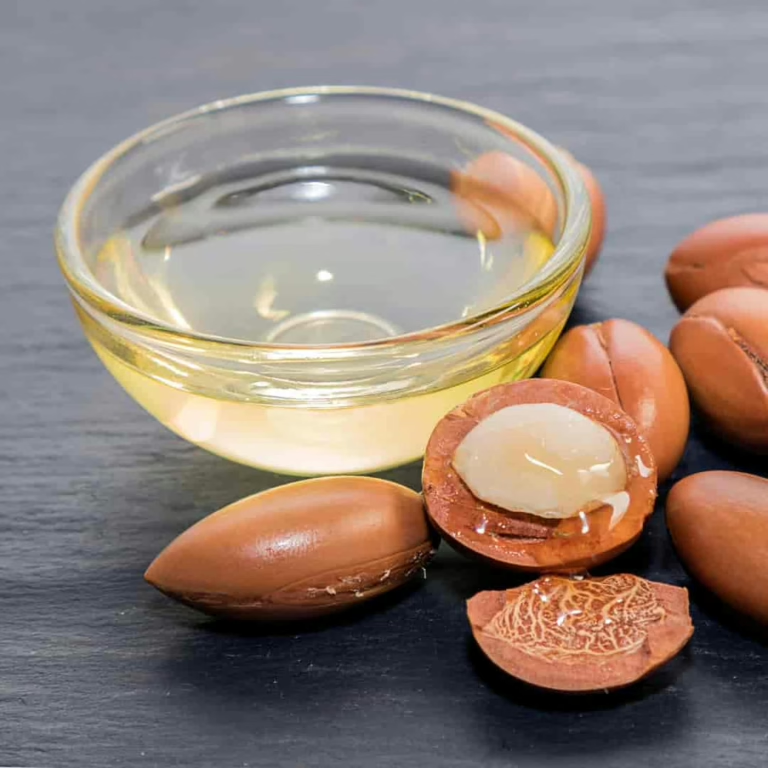Protecting Your Hair from Hard Water: Effective Solutions and Remedies for Healthy, Manageable Hair
Have you noticed a difference in your hair’s texture when traveling or after settling into a new city? One potential reason for this could be the type of water you’re using. Though it may be challenging to tell hard water from regular water, its effects on your scalp and hair are quite distinct. While hard water doesn’t pose a health risk, it can still affect the overall health of your scalp and hair. Let’s explore what hard water is, how it can contribute to hair fall, the impact it has, and tips to minimize damage.
Causes of Hair Fall Due to Hard Water
- Mineral Buildup
Hard water contains a high concentration of minerals that can negatively affect the health of your hair. These minerals penetrate the hair shaft and reach the cortex, which is essential for maintaining hair’s strength, thickness, and texture. Over time, this leads to weakened hair that is prone to breakage, resulting in increased hair fall. - Calcification Process
Calcium, a major component of hard water, can settle on the scalp in the form of soap scum. This buildup blocks the hair follicles, restricting hair growth. This process, known as calcification, reduces blood flow to the follicles, leading to scalp inflammation and follicle damage. Calcification can contribute to scalp conditions such as seborrheic dermatitis, psoriasis, and eczema, ultimately leading to hair loss despite using moisturizing products or having strong roots. - High pH Levels
The natural pH level of your scalp and hair is around 5.5, while hard water typically has a pH of over 8.5. When exposed to hard water regularly, the pH level of your hair can rise to as high as 10. This elevated pH causes the hair cuticles to become inflamed, leading to severe, irreversible damage and contributing to significant hair fall caused by hard water.
What is Hard Water?
Hard water isn’t defined by how it feels or its density but by the minerals it contains. Water is considered “hard” when it has high concentrations of minerals such as calcium, magnesium, sodium, iron, lime, or copper. Naturally, this leads to the question: Can hard water lead to hair loss? What does this mineral-rich water do to your hair?
Identifying Hard Water Hair Damage
It can be difficult to determine whether your hair troubles stem from hard water or other factors. However, there are clear indicators that excessive dryness and damage may be the result of mineral buildup from hard water:
- Brittle, tangled hair – Increased knots, tangles, and breakage may persist despite conditioning treatments, as hard water reduces hair’s elasticity.
- Flat, lifeless hair – Mineral deposits can weigh down hair, leading to a noticeable lack of volume and bounce.
- Dull color and lack of shine – Hard water can fade hair color and strip away its natural shine, leaving it looking lackluster and dry.
- Itchy, flaky scalp – Dryness and irritation often occur as mineral and chlorine residue accumulate on the scalp.
The Effect of Hard Water on Your Hair
- Strips away natural oils, leaving hair dry, brittle, and prone to breakage.
- Causes mineral build-up, making hair appear dull and lifeless.
- Leads to tangled, difficult-to-manage hair, making styling a challenge.
- Irritates the scalp, potentially causing itching, flaking, and dandruff.
- Accelerates hair color fading, especially for dyed hair.
- Weighs hair down with mineral deposits, giving it a heavy and greasy feel.
If you’ve noticed your hair becoming more difficult to manage after showering or following a move to an area with harder water, you could be facing hard water-related hair damage. If several of the above mentioned symptoms seem familiar, it’s time to take action! Making a few changes and incorporating simple remedies into your routine, you can help restore your hair’s moisture and shine while minimizing further damage from hard water.
Natural Remedies You Can Try at Home
Surprisingly, your kitchen may already have everything you need to treat hard water damage and bring your hair back to life. These natural, DIY treatments are easy to use and effective in removing mineral residue while deeply nourishing your hair.
- Apple Cider Vinegar (ACV) Rinse
With its high acetic acid content, apple cider vinegar is a superstar when it comes to breaking down mineral buildup and boosting shine. To use, mix equal parts ACV and water (1 cup each). After shampooing, pour the mixture through your hair from roots to tips, allowing it to soak for 1-2 minutes. The longer it sits, the better! Besides removing buildup, the vitamins in ACV will nourish your strands, leaving them healthier and shinier. - Lemon Juice Rinse
The citric acid in fresh lemon juice is another excellent remedy for dissolving mineral deposits on your scalp and hair. It’s packed with vitamin C, which promotes hair health and growth. Mix lemon juice with water, apply to clean, damp hair, and let it sit for 2-3 minutes. Rinse thoroughly and repeat 1-2 times a week. Just be sure to follow up with a hydrating conditioner to balance out the acidity. - Baking Soda Scrub
Baking soda is a gentle exfoliant that works wonders in removing stubborn mineral deposits and soap scum. Create a paste by mixing baking soda with water, and massage it into your scalp and hair. Let it sit for a minute before rinsing thoroughly—just be careful not to leave it on too long as it can dry out your hair. Limit this treatment to once a week to avoid over-drying. - Aloe Vera
Packed with enzymes, aloe vera helps eliminate buildup and replenish moisture in your hair. Simply apply fresh aloe vera gel to your scalp and hair, let it sit for 15-20 minutes, then rinse thoroughly with water.
By adding these home remedies into your routine, you can combat hard water damage and bring back the bounce and shine your hair deserves.
Specialized Hair Care Products for Hard Water Damage
While home remedies can provide temporary relief from mineral buildup, using specialized hair care products designed for hard water areas can offer long-term protection and repair between washes.
- Use Clarifying Shampoos
Avoid using bar soaps for washing your hair, as they leave behind soap scum that is difficult to remove from both the scalp and hair. This problem worsens for those suffering from conditions like seborrheic dermatitis. In contrast, clarifying shampoos are designed to effectively cleanse the hair, removing excess sebum, styling product buildup (such as mousse, gel, or hairspray), and other residues. Regular shampoos, including natural ones, often fail to remove the polymer film left by styling products. Clarifying shampoos also help eliminate mineral buildup and restore the natural pH balance of your hair, promoting a healthier scalp and hair. - Chelating Shampoos and Conditioners
For lasting protection against hard water, consider shampoos and conditioners formulated specifically to remove mineral and metal buildup. These are called “chelating” products because they contain ingredients that bond with mineral deposits, effectively lifting them away from your hair.
When shopping for a good chelating shampoo, look for key ingredients like EDTA(Ethylenediaminetetraacetic acid), sodium PCA, arginine, or citric acid. These components help break down and dissolve mineral residue without stripping your hair of moisture. To maximize results, use a clarifying chelator first, followed by your regular sulfate-free shampoo to keep your hair free of hard water buildup. - Deep Conditioning Treatments
A weekly deep conditioning mask is essential to restore moisture and repair hair cuticles that have been damaged by mineral deposits. These treatments provide intense hydration, helping to smooth and soften rough strands. Opt for masks that contain ingredients like pro-vitamin B5, which penetrates deep into the hair shaft to replenish moisture from within. Oils such as coconut, argan, or olive in these formulas can further nourish and revitalize dry, brittle strands. - Scalp Detoxifying Treatments
Mineral buildup and dead skin cells can clog hair follicles, which may impede healthy hair growth. To detoxify your scalp, try a weekly exfoliating treatment that gently removes residue and boosts circulation, promoting stronger hair growth.
Look for exfoliating scrubs that use ingredients like charcoal or sea salt to effectively draw out impurities while providing a mild buffing action. After using a scalp scrub, always follow with a nourishing conditioner to soothe and hydrate the scalp. This regular detoxification process can help promote a healthier environment for hair growth.
What are Chelating agents
Chelating agents are chemical compounds that bind to metal ions or minerals, such as calcium, magnesium, iron, and copper, and help remove them from surfaces like hair, skin, or even fabrics. They form stable complexes with these metal ions, making it easier to wash them away.
In the context of hair care, chelating agents are used in shampoos, conditioners, and treatments to tackle the effects of hard water, which can leave mineral deposits on the hair and scalp. By binding to these deposits, chelating agents help prevent buildup, dullness, dryness, and other issues caused by hard water.
Common chelating agents found in personal care products include:
- EDTA (Ethylenediaminetetraacetic acid): A widely used chelating agent in shampoos and conditioners.
- Citric acid: Often used to break down minerals and soften water.
- Phytic acid: A natural chelating agent derived from plants.
Using products with chelating agents can help maintain the health, softness, and shine of your hair, especially if you’re dealing with hard water.
Understanding the effects of hard water on your hair and implementing preventive measures can help you maintain healthy, manageable hair. From using chelating products and incorporating a clarifying shampoo routine to trying home remedies like vinegar rinses, these steps can offer protection. If hard water is unavoidable, using a water softener can reduce its negative impact on your scalp and hair. In more challenging situations, consider washing your hair with RO-purified water to further protect it from damage.

